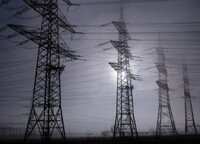
CASABLANCA, Morocco: In just over a month, six young men have blown themselves up in Morocco, sparking intense worry in a nation that has largely escaped local terrorism while exporting scores of fighters to Iraq.
But apart from the bombers themselves, only one person was killed - a blessing but also a puzzle.
"I am very happy that they didn't kill anyone else, no friend and no enemy," said Abed Maha, 61, the grieving and baffled father of two men who exploded themselves near the American Consulate last Saturday. "They were the only victims."
Nonetheless, deep uncertainties have left the government in a state of "extreme alert" over whether this peaceful and moderate Muslim society faces a new terror threat against its own government or tourist sites.
In an interview Thursday, Interior Minister Chakib Benmoussa took a careful line, playing down some fears while raising others. So far, he said, there appeared to be no links between the Morocco bombers and Al Qaeda or the attacks in Algeria, where militants have formally attached themselves to Al Qaeda. And in the second incident in one week, near the American Consulate last Saturday, he said, the bombers seemed to go out of their way to avoid other casualties.
But he also said the bombers seemed to have come from two groups, not one, as originally reported here. That means that, within a few days, two distinct groups showed themselves capable of making powerful suicide belts and carrying out attacks.
In short, the Qaeda ideology, with the availability of easy bomb-making recipes on the Internet, appears to be growing deeper roots here.
Moreover, Benmoussa said that the main cell uncovered recently, composed of about 40 people, was aimed at hitting government institutions or sites frequented by tourists, even if it had no concrete plans to do so immediately. "We are aware that they will try again and again," Benmoussa said. "We are now in some kind of race where we have to remain very vigilant, with a very high level of security."
In the recent incidents, five of the men detonated themselves last week, coinciding with attacks across the border in Algeria that killed 33 people in the deadliest bombing there in years. Many terror experts have thus worried about a more focused intention of Al Qaeda, which took responsibility for the Algeria attack, to disrupt northern Africa.
Morocco hit just once before, in 2003 in coordinated attacks that killed 33 bystanders and 12 bombers is at full attention: The American consulate closed, amid tightened security at other consulates, hotels and police stations. Security forces man the highways, searching cars and slowing traffic.
"Morocco is in a state of extreme alert and this situation prevails as much in Casablanca as in other cities and sensitive zones in the country," the communications minister, Nabil Benbdellah, said in Rabat, the capital, on Wednesday.
Skeptics said the government has an interest in minimizing any local connections with Al Qaeda or to jihad in Iraq, so as not to scare away the foreign investment and tourism.
Even if the Moroccan bombings were not related to Al Qaeda or the attacks in Algeria, they nonetheless stand out.
Terror exports said that in recent years the focus of Moroccan extremists has been on recruiting fighters for Iraq, as earlier generations of other militants went to Afghanistan and Bosnia. Indeed, security officials here estimate that 50 Moroccans have gone to Iraq, many as suicide bombers, with two dozen coming from a single city, Tetuoan, in the north.
"The only goal of these cells and the network is to force these regimes to let them do what they want to do, which is to recruit people for Iraq," said Mohammad Darif, an expert on Islamic terror groups at Hassan II University here. "They want to fight there."
But Benmoussa said that while groups do exist to recruit for Iraq, the larger cell uncovered here last week was focused internally. In fact, he said, investigations show it was a remnant of the group that carried out the 2003 attacks here that hit foreign hotels and Jewish sites.
He said the police began following the group in February, and police pressure led to the explosion of one militant, apparently by accident, in an earlier episode, in a cyber café on March 11.
Then, five weeks ago, a group of young men all from the shantytown of Sidi Moumen to the city's north rented a room in the Hay Farah district here. Their landlady said they paid $280 in advance for two months, prompting some suspicion for not disputing the price.

"The didn't negotiate," said the landlady, Jama'a, 65, who would give only her first name. She said they did not seem religious and kept to themselves, except when a stream of young men came in and out.
On April 10, the police raided the building, and in the confrontation, three men blew themselves up, one killing a policeman, and a fourth was shot and killed.
In contrast to the Algeria attacks last week, these bombs went off during a police raid, not in a planned attack. The bombs, too, were unlike those in Algeria, where plastic explosives were reportedly used. The bombs here were homemade, of acetone and cleaning supplies, the authorities said.
Four days later, in a nation with already jangled nerves, came an attack of a kind that had not yet been seen in Morocco: That Saturday morning, just before 9 a.m., two men blew themselves up near the American Consulate here and an American-owned language school.
But the bombs did not go off directly at either place, raising questions about exactly what the bombers had intended.







